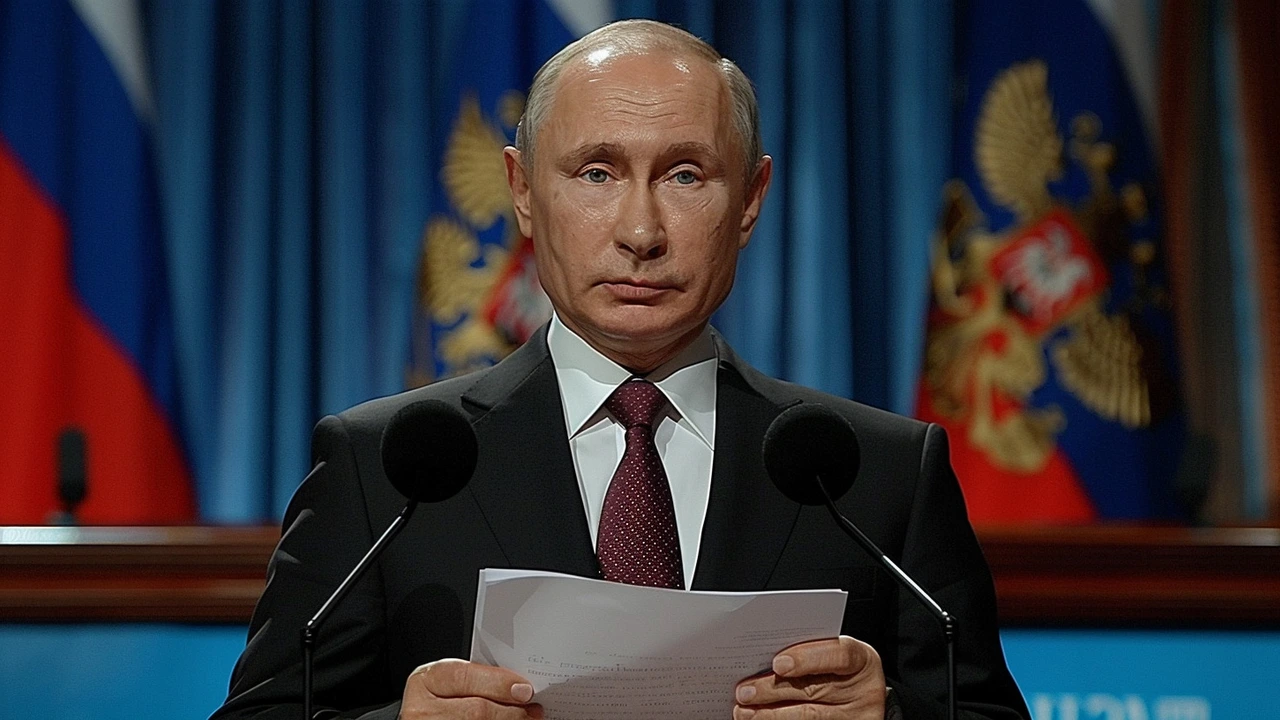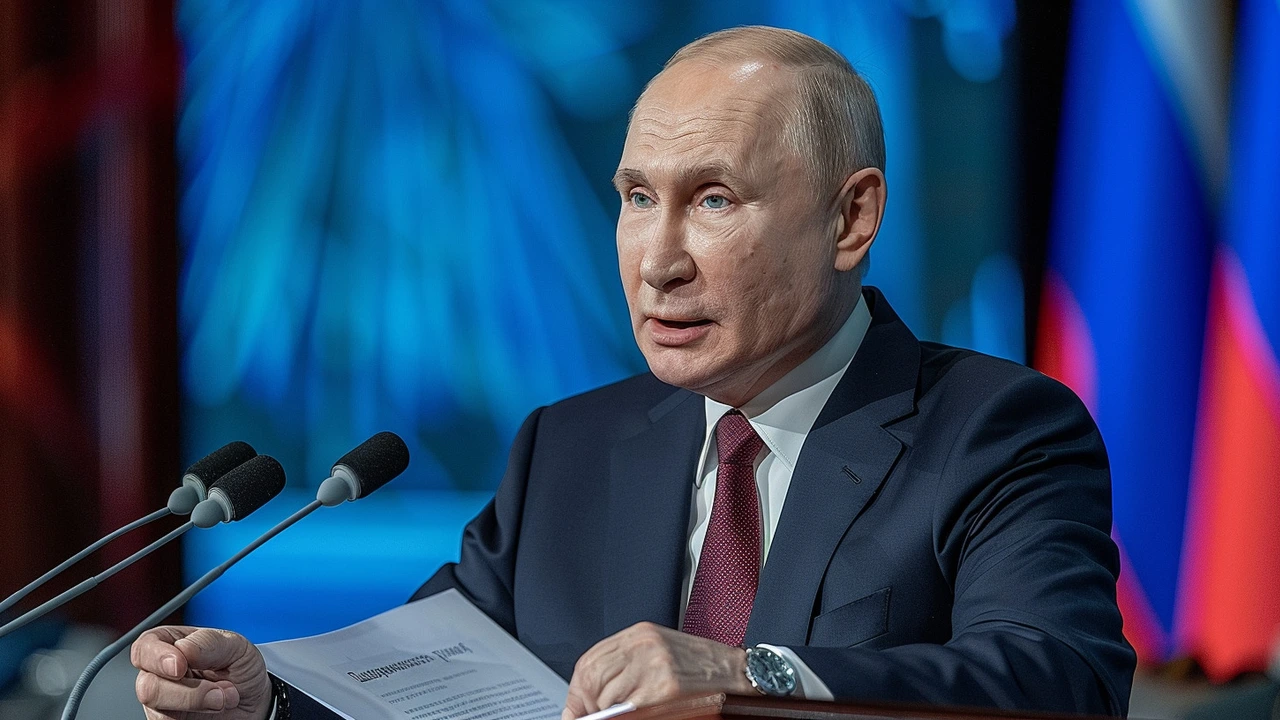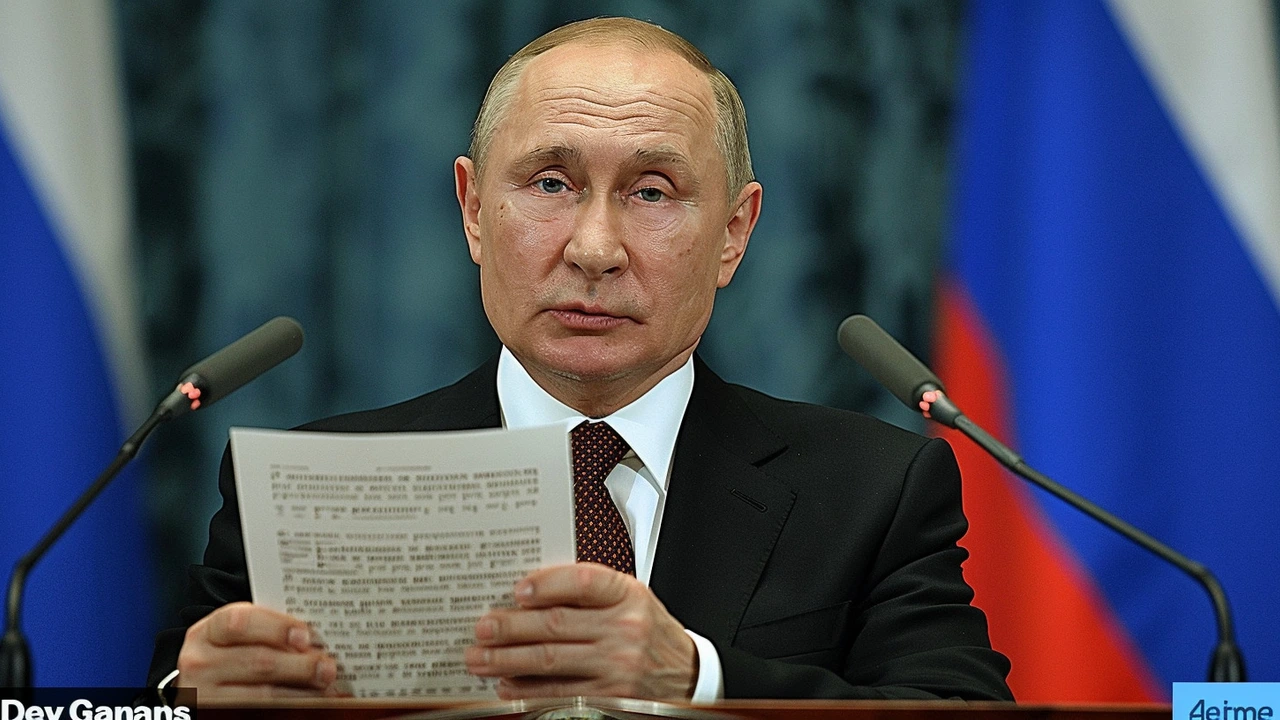Putin's Ceasefire Proposal
Amid the ongoing conflict in Ukraine, Russian President Vladimir Putin has put forth a significant proposition. He has stated that Russia will enforce an immediate ceasefire and commence negotiations if Kyiv meets two critical conditions: the withdrawal of Ukrainian troops from the four regions currently under Russian occupation and the abandonment of its aspirations to join the North Atlantic Treaty Organization (NATO). The assertion came during a speech at the Russian Foreign Ministry in Moscow, where Putin firmly declared, 'We will do it immediately.' This announcement comes at a critical juncture, with the leaders of the G7 nations convening in Italy and the globe's attention pivoting towards an assembly in Switzerland focused on forging pathways to peace in Ukraine.
Kyiv’s Response and Objectives
While Putin’s proposal appears to indicate a potential avenue toward de-escalation, the likelihood of its acceptance by Kyiv remains exceedingly low. Ukraine's government has maintained a steadfast stance on two key points: the complete withdrawal of Russian forces from its territory and its commitment to joining NATO. These objectives stem from Ukraine's broader strategic goal of securing its sovereignty and ensuring its defense against any future aggression. The proposal from Moscow, therefore, is viewed with considerable skepticism in Kyiv, particularly as it demands significant concessions. These concessions, from Ukraine’s perspective, would undermine its territorial integrity and compromise its long-term security.

Historical Context
This proposed ceasefire is not the first instance where the geopolitics of NATO expansion has intersected with the Ukraine crisis. The origins of the conflict date back to 2014 when Russia annexed Crimea, a move that led to severe international condemnation and the subsequent imposition of sanctions. Following this, pro-Russian separatists declared independence in the Donetsk and Luhansk regions of Eastern Ukraine, triggering a conflict that has persisted for years. The recent trajectory of the war saw an escalation with Russia’s full-scale invasion in 2022, marking a significant turning point in the region's geopolitics. Since then, Ukraine has been resolute in pushing back against what it perceives as illegal occupation and has sought closer ties with Western nations, particularly through NATO membership.
The International Stage
The timing of Putin’s announcement is notable, influenced by the broader international diplomatic framework. The G7 summit in Italy has underscored the commitment of the world’s most industrialized nations to support Ukraine. Meanwhile, the upcoming assembly in Switzerland is set to bring together a multitude of global leaders to discuss actionable steps towards peace in Ukraine. However, despite these diplomatic efforts, the exclusion of Moscow from these gatherings highlights the deep-seated geopolitical rifts. The global community remains largely united in condemning Russia's actions, yet diplomatic efforts to resolve the conflict have thus far seen limited success. Putin's proposal, therefore, could be seen as an attempt to reassert Russia’s position in peace negotiations, albeit on terms that are heavily skewed in its favor.

Possible Outcomes
As the world watches the developments, several scenarios could unfold. Should Kyiv steadfastly reject Putin’s terms, the conflict is likely to continue, with both sides entrenched in their positions. The international community’s response to Putin's latest proposal will also be pivotal. Support for Ukraine from Western nations has been robust, characterized by military aid, financial support, and diplomatic backing. If Kyiv accepts the terms, which seems improbable at this juncture, it would mark a dramatic shift in the conflict's dynamics. Yet, such a shift would likely come at a high political and social cost domestically within Ukraine, given the public's sentiment towards territorial integrity and national sovereignty. The international diplomatic landscape will need to navigate these complexities, balancing support for Ukraine with broader aspirations for regional stability and peace.
The Path Ahead
The road to peace in Ukraine is fraught with challenges, with each step contingent upon delicate negotiations and substantial compromises. The fundamental issues at stake - sovereignty, territorial integrity, and national security - are deeply embedded in the conflict’s fabric. The proposed ceasefire, while a glimmer of potential respite, underscores the deep divisions and complex geopolitics at play. For lasting peace to be realized, it will require nuanced diplomacy, sustained international pressure, and perhaps most critically, the political will from all parties to reach a compromise. As the G7 and global leaders deliberate on the next steps, the quest for peace in Ukraine remains an evolving and precarious journey.

